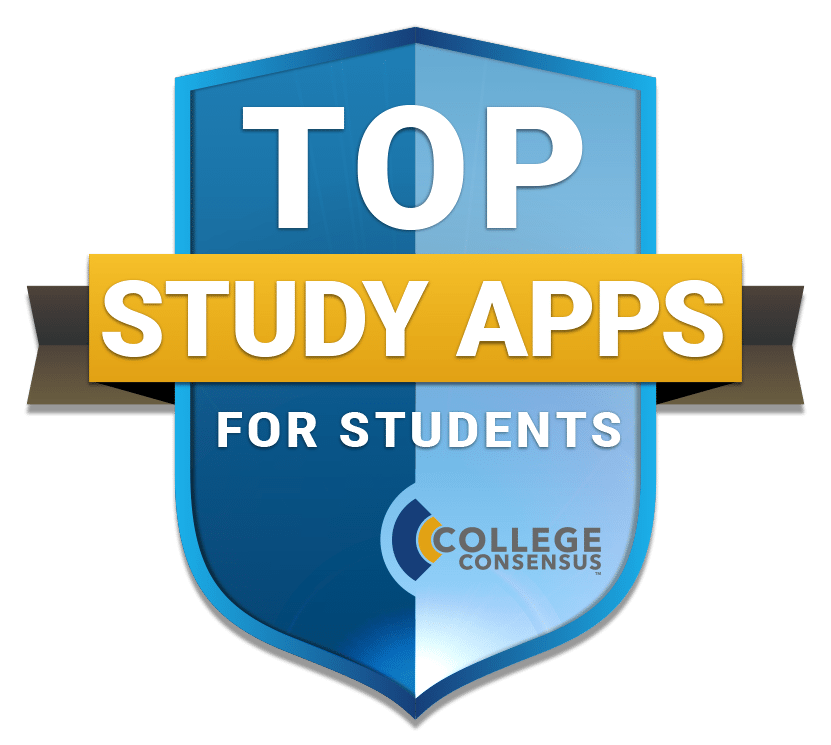
Going to college is one of the biggest changes in a young person’s life, and frankly, you’re not ready for it. Oh, you’re ready for some of it – you might be totally prepared for your classes, or you might have been born ready to grab Greek Life by the horns. But you’re not ready for all of it – classes and studying, meals and laundry, clubs and sports, exercise, and panic attacks. College is a lot of changes coming at you all at once, and you’re going to need help.
It’s a good thing you decided to start college in the Digital Age. Before, all you had were books, paper, pens, and your own feeble brain. How did people do it? Now, there are endless productivity sites, study apps, and digital tools to help you work smarter, live better, and get through college with no more frustration than necessary. From tools to help you organize your time and notes, to apps that help you focus, sleep, or wake up, the 21st-century student has a helpful digital advisor, assistant, and audience 24/7.
How to Find the Best Study Apps Amongst All the Rest
Well, we’ve done that for you! These are the top 20 apps and online tools (plus a few more) that College Consensus thinks have the most potential to be helpful for college and university students. We’re not affiliated with any of these products, we don’t get paid for endorsing them, and we’re not taking any responsibility if you get so smart, sophisticated, and productive that life becomes a bore. Blame the internet, not College Consensus.
1. Accelastudy Vocabulary Builder

How’s your vocabulary? If you’re an average college-aged American, you know around 42,000 words. That sounds like a lot, until you realize that there are more than 170,000 words in the English language – meaning the average American only knows about a quarter of them (and that’s not even counting the words no one uses anymore). Accelastudy is a cloud-based vocabulary-building app that helps students learn new words in a fun way, with flashcards, spaced repetition, and quizzes. A big vocabulary might not impress everybody at a party (unless you go to some real swingin’ parties), but it will help you where it counts – on exams like the GRE, GMAT, and LSAT.
2. Adobe Fill & Sign
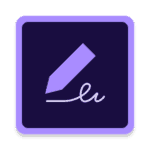
An app that allows you to fill in PDF forms and sign them on your iPad or smartphone? How amazing! How revolutionary! How life-affirming! Okay, maybe it’s not the most thrilling thing you’ve ever heard. But if you’re just starting your college career, you may not realize exactly how many forms you’re going to have to fill out. Trust us – it’s a LOT. And that’s why it’s pretty essential to have the Adobe Fill & Sign app on your device. Adobe Fill & Sign lets you fill out information on a PDF form (even ordinary, non-writable PDFs) and sign with a stylus or Apple Pencil. And it will even save your signature or initials, so you don’t have to go through the brutal labor of signing your name every time.
3. Bibme
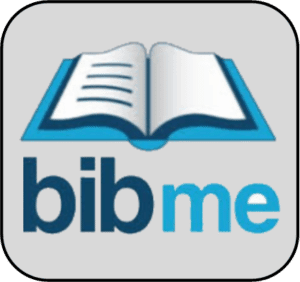
It doesn’t matter what your major is – whether it’s modern dance or microbiology, you’re going to write research papers. Undergraduate research is one of the main movements in college education today, preparing students early for high-level research, so get ready now. BibMe is an online writing center that goes way beyond ordinary citation builders – which are frequently wrong. Besides helping student craft correct citations, BibMe checks for grammatical and mechanical errors and puts together a correct bibliography in any common style. The paid version does all that, and checks for unintentional plagiarism too – a valuable service if you’ve got a stickler professor.
4. Brain.fm

There’s ordinary online radio, and then there’s Brain.fm. There is no end of scientific studies and anecdotal evidence that shows that music is good for the brain – concentration, relaxation, meditation, and elevation – but it’s hard to find the right music. If you’ve ever spent an hour trying to find the perfect study music, going back and forth from one Spotify list to another, you’re doing it wrong. Brain.fm claims the be the most sophisticated music AI ever developed, and even if you don’t know AI, you can see they’re doing something right. Settings for focus, sleep, and calm work on a deeper level to alter your brain functions for the better. Take that, Mozart!
5. Cheatography

Let’s get this out of the way right now – Cheatography will not help you cheat. There are other sources you can go to for that, and take your chances. No good will come of it. But a lot of good can come of Cheatography. Cheatography is a massive, crowd-sourced collection of cheat sheets on dozens of different topics, more than 2500 and growing every day. These cheat sheets give you easy-to-read, to-the-point information about the topic you need to learn. Cheatography started out with cheat sheets on programming and coding, and that’s still one of their biggest collections, but there are sheets on hobbies, cooking, business, and more.
6. Coggle
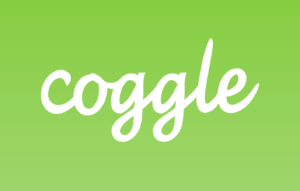
In college, you’re going to do a lot of brainstorming, planning, and organizing for all of the projects you’ll be assigned. A lot of that work, you’ll do with groups or partners. Coggle is a 21st century answer to an age-old problem – how to visualize information, and how to share it effectively. Coggle adds efficiency by letting you create shareable, collaborative mindmaps that you and your classmates can use to plot out your planning. Coggle is fun and intuitive, and it works in your browser, not an app or program you have to download. Coggle helps make your work make sense, to you and your partners.
7. Dashlane

In a conservative estimate, you probably have about 87,000 different online accounts, each with its own distinct login, and you’re now up to your 15 millionth unique password (our numbers may be a bit off). Of course, you could just use the exact same password for every account – and join the 2.6 billion accounts that were hacked last year. That’s what Dashlane is for. Dashlane generates unique passwords for all your accounts, stores them just for you, and enters them when you need. Because college students have more important things to remember than passwords.
8. Duolingo

If you’re like most Americans, you speak one language, and probably not very well (see #1 above). Whatever happened to all the French you learned just long enough for the final? Where are all those Spanish words unrelated to food? There’s a better way to learn a language, though – through fun, addicting mobile games like the ones in Duolingo. Duolingo is a prime example of how smart gamification can make learning fun, with little built-in endorphin releases every time you show progress. There are a lot of choices, and new ones are being added all the time – including Klingon.
9. Evernote and Penultimate
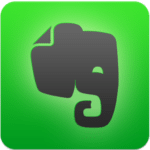
Once upon a time – when people kept notes with pens and paper, life was simpler, and everyone died young – literate people often kept a commonplace book. That was a notebook where they wrote whatever they wanted to remember, from their reading or experience. It was a valuable resource. College students should really take up that habit. Evernote likes to call itself a second brain, and this app can help you keep and organize all your notes, links, lists, and even audio. Penultimate does all of that and works with a stylus for you to keep handwritten notes – just like the olden days.
10. Grammarly

Sending an email filled with errors to your English professor is not the worst impression you can make – you could step on her foot while sneezing in her face, for instance – but it’s pretty bad. Maybe your friends don’t care if your text messages look like the tracklist for a Prince album, but you’re in college, and professionalism is key to success. Grammarly is a Chrome extension that won’t save your life, but it will save your dignity. Grammarly checks grammar, spelling, and mechanics for anything you write online, and even helps you improve it with progress reports on your most frequent mistakes, and how to stop making them. Check out Grammarly, the world’s best automated proofreader; you won’t be disappointed.
11. Headspace
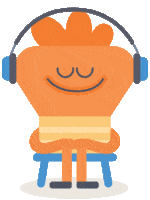
College students are stressed – more stressed than college students in the past, by a long shot. That’s not just our opinion either; scientific studies back it up. Young people haven’t always developed their defense mechanisms or strategies to deal with stress, but like everything else today, technology is here to help. Headspace is a meditation app designed to help you chill when you need it most. Guided meditations for mindfulness, relaxation, and sleep; short meditations to snap you back to reality; and emergency cool-downs for when you feel like freaking out – all on your mobile device. Who says technology is stressful?
12. Instructables
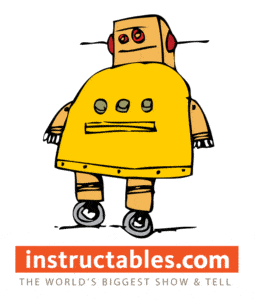
We realize you’re in a class all the time already. Why would you want to take more classes in your free time? You’ve got a point, but Instructables is the place to go to learn how to do just about anything you want to learn to do. Want to learn to crochet? It’s on Instructables. Want to learn to crochet a bacteriophage virus? Yeah, actually, that’s on Instructables too. Cooking, crafts, technology, magic tricks – it’s there. And it’s free. Instructables grew out of MIT’s Media Lab, so it’s got some academic cred (like street cred, but not). It’s so much fun, you might forget to go to your real classes.
13. Mint
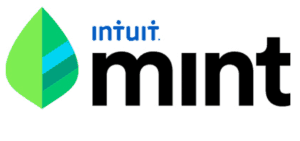
Are you tired of hearing about all the things Millennials can’t do? Can’t balance a checkbook, can’t keep up with bills, can’t make a budget. You’d think previous generations were born with a double-column bookkeeping ledger in their hand (look it up). But honestly, why learn to do all that when we have computers to do it for us? Mint, a mobile app from Intuit, helps you pull all of your bills and accounts together into one tool, so you can see what you have, what you’re spending, and how badly one outweighs the other. Then, Mint will help you make a budget and check your credit score. No accounting degree is required.
14. Pocket

There was a time when people read things called “newspapers” and “magazines.” They were made of paper, and they usually smelled weird. If they were cheap, ink got on your hands. And if you wanted to keep an article for later, you had to actually rip or cut it out and save it somewhere – like your pocket. Pocket is an app that lets you digitally rip out the article you don’t have time for now and save it for later – along with videos, podcasts, pictures, and anything else your little media-consuming heart desires. Pocket: because you’ll have free time – later.
15. Sleep Cycle Alarm Clock
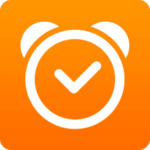
Hunger and sleep deprivation are two of the most destructive forces facing college students’ studies (the third is a social life). Apps can’t help you much with the first, but there’s help for your sleep cycle. The Sleep Cycle Alarm Clock is an app that helps you track your sleep scientifically to get better, more productive sleep. The app uses your smartphone’s microphone function to listen to you sleep – which sounds way creepier than it is – to find when you are sleeping your deepest, and when you are fully rested and ready to wake up. If that’s five minutes after your statistics exam starts, don’t blame the app.
16. Soundnote
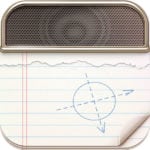
College used to be sitting in a hall listening to a professor lecture and writing down everything he (it was definitely a “he”) said. Lucky for you, that was when hardly anyone went to college, because who would want to go through that? Of course, listening to lectures and writing down everything the professor says is still part of college (just not as much as it used to be), and for those times, an app like Soundnote is worth its weight in gold. Fortunately, it’s only five bucks, and it lets you record audio while taking notes on the same device. It will even let you search your notes and sync them to the audio. Basically, it means you never have to worry whether you missed something important again.
17. TinyScan

As we mentioned above, college comes with a lot of forms, and as much as it would make sense to have everything available electronically, not all colleges have caught up to the latest technology. Or even the next-to-latest technology. So, plenty of those forms will be on paper, the latest technology of 100 AD. Having a scanner to turn those forms into electronic versions that you can email and alter can be a big help, and TinyScan gives you one in your pocket. The TinyScan app turns your smartphone camera into a scanner and allows you to email or fax documents anywhere. The free version only lets you keep two docs on your phone, but duh – email them to yourself.
18. Todoist

What do you have to do today? You don’t know? Quick, get your to-do list! What? Your to-do list isn’t a fully integrated, cross-device app that collates all your information, helps you prioritize it, and lets you see your progress as you achieve your goals? Well, you could get Todoist, the app that does all those things. If you need to stay on top of classes, study groups, meetings with your advisors, club activities, and anything else (call your mom, it’s her birthday), Todoist will keep you on track and on your mark.
19. Venmo

A good 30% of college life is arguing with your roommates about who bought the last round, or who owes who for concert tickets (Right? that couldn’t have just been us). Whether you’re the owner or the owed, Venmo makes it easy to pay a friend back, send gifts, and transfer money. There are plenty of apps and tools for transferring money or paying friends, but Venmo does it all with convenience and a clear, social media-style interface. Put it on your phone to save yourself some trouble. Then find the friend who always owes you money but never has cash on them, and put Venmo on their phone too. No more excuses.
20. Wolfram Alpha

It’s hard to explain exactly what Wolfram Alpha is, so we’ll let them: Wolfram Alpha’s goal is to “make all systematic knowledge immediately computable and accessible to everyone” by “doing dynamic computations based on a vast collection of built-in data, algorithms, and methods.” That’s – that’s pretty big. Wolfram Alpha has a database of facts and figures that is growing by the moment, and it does the heavy lifting of analyzing all that information to compare, calculate, and other mathematical words. Do you need to figure the magnetic flux density for an object? Do you need to prove Led Zeppelin had more hits than Pink Floyd? Go to Wolfram Alpha, and watch the next three and a half hours of your life disappear.
Honorable Mentions
With all of the shiny new toys out there, we can’t forget the tried and true, the old reliables, the stalwart workhorses that we boring old professionals take for granted. You may as well learn them too – you’ll be using them soon enough.
-
G Suite (formerly Google Apps)

There was a time when everything you did in life was not tied to Google. When word processing, spreadsheets, calendars, and other functions were handled by separate programs. That time was, oh, five years ago or so. You wouldn’t remember. (Don’t even ask how we did it in the 90s). Now, everything you need for productivity is on G Suite, and you’ll be using it when you hit professional life. Get used to it.
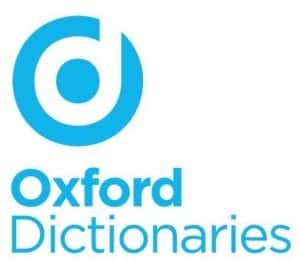
The Oxford English Dictionary is one of the finest cultural and academic achievements of Western history, and it thinks the most important word of the year 2017 was “youthquake.” That’s a lot to process, but since 1884, the Oxford Dictionary’s mission has been to record every meaning of every word in the English language (all 170,000 of them, if you remember what you read a few minutes ago). Now, it’s all online, and according to the head of the Oxford University Press, will never be printed on dead trees again.
